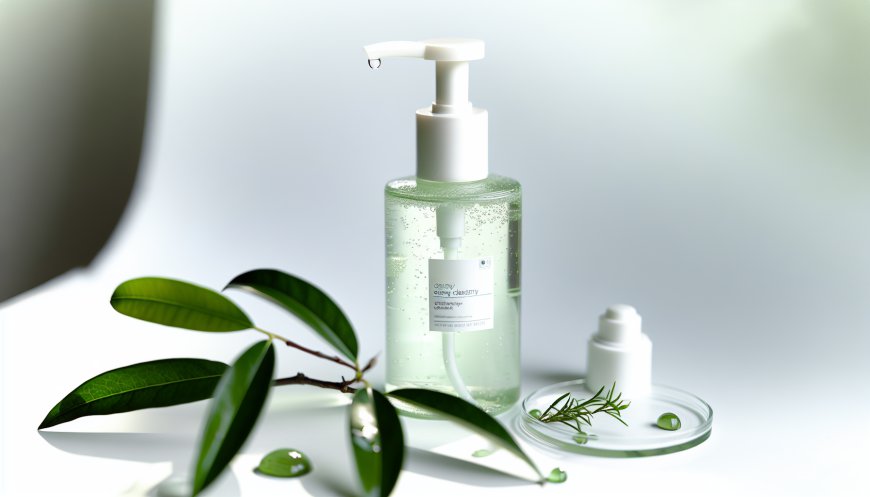How to Choose the Best Skin Care Solutions for Your Needs

Finding the right skin care solutions can feel overwhelming, especially with the vast array of products and treatments available today.
From serums to cleansers, moisturizers to exfoliants, the choices can leave anyone unsure about what works best for their unique skin.
This guide will help you navigate the selection process, ensuring you choose the best skin care solutions tailored to your specific needs.
1. Understand Your Skin Type
The foundation of any effective skin care routine begins with understanding your skin type. Skin types are generally categorized into five groups:
-
Normal Skin: Balanced, not too oily or dry, with minimal blemishes.
-
Dry Skin: Often feels tight or rough, and may have flakiness or redness.
-
Oily Skin: Prone to shine and breakouts due to excess sebum production.
-
Combination Skin: A mix of oily and dry areas, typically with an oily T-zone.
-
Sensitive Skin: Easily irritated by certain products or environmental factors.
Knowing your skin type will help you select products with the right formulations.
For instance, oily skin benefits from lightweight, oil-free products, while dry skin requires rich, hydrating ingredients like hyaluronic acid or glycerin.
2. Identify Your Skin Concerns
Once you’ve identified your skin type, the next step is to pinpoint specific concerns you want to address. Common issues include:
-
Acne and breakouts
-
Fine lines and wrinkles
-
Hyperpigmentation or dark spots
-
Redness or irritation
-
Uneven skin tone
-
Dehydration
Each concern requires targeted ingredients. For example, acne-prone skin often benefits from salicylic acid or benzoyl peroxide, while dark spots can be treated with vitamin C or niacinamide.
Understanding your priorities will help narrow down your options.
3. Look for Key Ingredients
The right ingredients make all the difference in skin care solutions. Here’s a quick guide to some common active ingredients and their benefits:
-
Hyaluronic Acid: Hydrates and plumps the skin, ideal for dry and aging skin.
-
Retinol: Reduces fine lines, wrinkles, and acne; suitable for most skin types but should be used cautiously on sensitive skin.
-
Vitamin C: Brightens skin and fades dark spots, offering antioxidant protection.
-
Salicylic Acid: Exfoliates and unclogs pores, making it effective for oily and acne-prone skin.
-
Niacinamide: Balances oil production, reduces redness, and improves overall skin texture.
-
Ceramides: Strengthen the skin barrier, beneficial for dry and sensitive skin.
Read product labels carefully and choose solutions with ingredients tailored to your specific concerns.
4. Patch Test New Products
Even if a product seems perfect on paper, it’s essential to test it on a small area of your skin before applying it all over your face.
A patch test can help you determine if your skin reacts negatively, especially for those with sensitive or acne-prone skin.
Apply a small amount of the product to your inner wrist or behind your ear and wait 24-48 hours to check for any redness, itching, or irritation.
5. Simplify Your Routine
When it comes to skin care, more isn’t always better. Overloading your skin with too many products can lead to irritation, breakouts, or conflicting interactions between active ingredients. Start with a simple routine that includes:
-
Cleanser: To remove dirt, oil, and makeup.
-
Moisturizer: To hydrate and lock in moisture.
-
Sunscreen: To protect against harmful UV rays.
-
Optional Treatments: Such as serums or spot treatments for specific concerns.
You can always add products gradually as you learn how your skin responds.
6. Consider Professional Advice
If you’re unsure about which solutions to choose, consulting a dermatologist or esthetician can be incredibly beneficial.
They can analyze your skin, recommend suitable treatments, and help you avoid products that may worsen your concerns.
Professional advice is especially important for persistent issues like severe acne, rosacea, or eczema.
7. Prioritize Quality Over Quantity
The skin care market is flooded with trendy products and celebrity-endorsed solutions, but not all are effective or worth the investment.
Look for reputable brands with clinically tested products. While high-quality products may be pricier, they often provide better results and last longer.
8. Check for Allergens and Fragrances
If you have sensitive skin or are prone to allergies, opt for products labeled as hypoallergenic or fragrance-free.
Fragrances, while appealing, can irritate the skin and cause breakouts. Natural doesn’t always mean better, so always research the ingredient list.
9. Don’t Skip Sunscreen
No matter how effective your skin care solutions are, they won’t make a difference if your skin isn’t protected from the sun.
Daily sunscreen application is a non-negotiable step in any routine.
Choose a broad-spectrum sunscreen with at least SPF 30 to shield your skin from harmful UV rays and prevent premature aging.
10. Be Patient and Consistent
Skin care solutions don’t deliver overnight results. Most products take at least 4-6 weeks to show noticeable improvements.
Consistency is key to achieving and maintaining healthy skin. Avoid switching products too frequently, as this can disrupt your skin’s balance and delay progress.
Final Thoughts
Choosing the best skin care solutions for your needs requires understanding your skin, identifying your concerns, and selecting products with suitable ingredients.
Keep your routine simple, patch test new products, and consult professionals when in doubt.
With patience and consistency, you can achieve healthier, glowing skin tailored to your unique needs.
